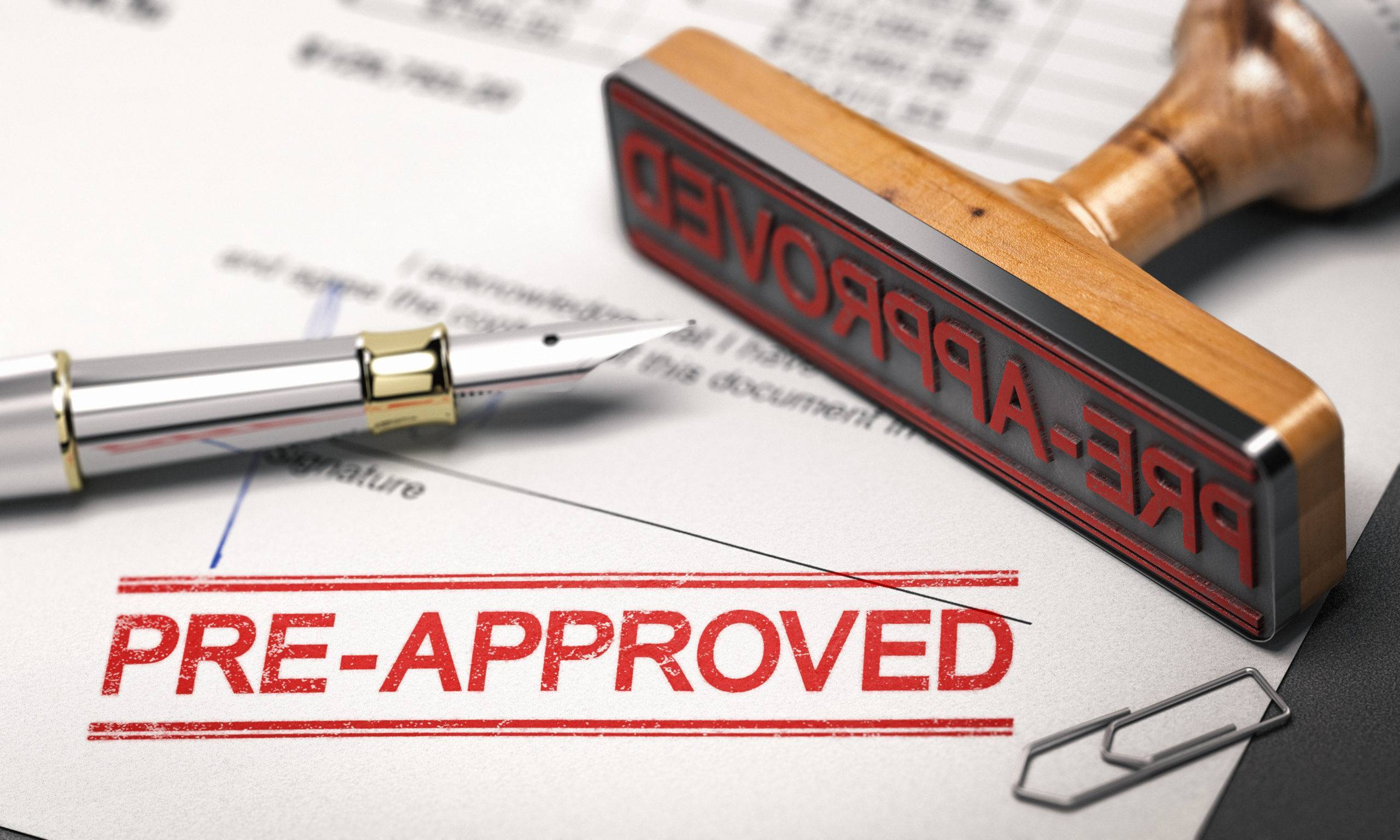What to Consider When Buying Your First Home

The lure of first-time home ownership is powerful and exciting. There’s really nothing like it. For some it creates an opportunity to build generational wealth, and for others it creates an investment to sell at a later date. Maybe you’ve been saving for years or perhaps you’re looking to take advantage of first-time homebuyer programs. Whatever your motivations to buy a home for the first-time, leaping into homeownership is always a big decision. It’s very important to enter into the process realizing that what you’ll be experiencing will indeed be just that — a process! And, it can be complicated — even a bit overwhelming — if you’re unprepared. Let’s take a look at some first-time homebuyer tips and common pitfalls to avoid so you’ll be well-informed for your purchase.
Prepare Your Finances and Determine Your Budget Early
A home is an investment for you, and a home loan or mortgage is an investment for the lender or bank. They’re looking for low-risk customers for loans, so you’ll need to show stability with regard to income, expenses and debts, and employment status. There are a few things you can do to prepare your finances before acquiring a mortgage. The three most important:
•Pay down debt;
•Make your payments on time;
•Avoid opening new loan or credit card accounts (a common mistake).
During this time you’ll also want to start saving for a down payment, if you don’t already have the amount you’ll need. This amount can be determined as a percentage of the total mortgage amount and by what type of mortgage program you’ll be using. Banks will generally want you to maintain a debt-to-income ratio lower than 36% to ensure that you’ll be able to pay back your loan. Mortgage calculators can help you determine your monthly payment, while figuring out how much house you can afford based on your income is also important. If you’re putting down less than 20%, you’ll likely be responsible for private mortgage insurance (PMI), which will drive up your monthly costs.
Don’t forget to calculate the invisible costs, like maintenance or repair expenses, property taxes, and closing costs. In summary, know your budget, start saving, and resist the temptation to overspend.
Explore Your Mortgage Options and Get Pre-Approved
There are many types of mortgage loans, including specialized loans for first-time homebuyers. The most beneficial part of these is the dramatically reduced down payment requirements. Where the typical buyer must make a downpayment of at least 20%, first-time buyer loans require 3-5% down. On a $250,000 home, that’s the difference between $50,000 and $7,500 down! Before committing to any one type of mortgage, it’s best to thoroughly investigate your options so you can make the best decision for your situation.
Before you begin shopping for that perfect home, particularly if it’s your first time buying, it’s a really good idea to get a mortgage prequalification letter. A prequalification letter is an estimate of the amount of home loan you can get based on an informal evaluation of your income and other information. Prequalification benefits you and your real estate agent in that you both will be clear about what you can afford, which will ensure you shop within budget. It also allows you to make a stronger offer to sellers because they can see that you can afford their home and have the money needed to purchase it.

Save For a Down Payment and Don’t Forget Closing Costs
One of the Federal Housing Administration’s (FHA) most important priorities is helping homebuyers with the purchase of their first home. If you qualify as a first-time home buyer, you may have access to state programs, tax breaks, and an FHA loan. Here is the U.S. Department of Housing and Urban Development (HUD) website, for easy reference to eligibility criteria. If you qualify, you can benefit from a number of assistance programs, including down payment assistance loans and grants.
In addition to the down payment, you’ll also need to cover closing costs, which are the expenses that go to your lender and settlement agent in exchange for arranging certain loan services (i.e. attorney fees, pest inspection fees, appraisal fees, escrow fees, title insurance, discount points). Generally, you can expect to pay 2%-5% of your total loan amount in closing costs. However, as a first-time buyer, you may qualify for government-backed grants or loans that assist with these costs.
Make a Must-Have Home Feature List
Is location important to you? How about schools? Does the home need to be turnkey, or are you up for a renovation project? Remember that there are many things you can change within a home, including the kitchen, backyard, bathrooms, and bedrooms. What you can’t change is the location or the lot size. These are also important to keep in mind when determining “must-haves”.
Your reason for buying a home will be your north star for making decisions about your purchase. For example, if your goal is to dip your toe into real estate investment, a duplex may be the perfect option for you. Or, if you’ve decided to move closer to aging parents or to your support system as you start a family, perhaps a condo or townhouse that requires less upkeep is an option or a single family home with extra bedrooms. Are you hoping to age-in-place? A one-story home may be your best bet. Do your fur babies need a big yard or plenty of green spaces? Sit down and create a list of the qualities you want and need in your new home. This will help you to more effectively shop and compare with less stress.
Interview and Hire a Realtor
A real estate agent is a professional and expert at their job, which is to find a house that perfectly suits your needs and budget. They’ll be able to tell if a home is properly priced for the neighborhood and how quickly properties are selling. They’ll also be able to negotiate on your behalf, prepare the required paperwork for you, manage the process through multiple steps, and attend the closing to make sure everything is in order with your sale. While it is possible to do this all yourself, as a first-time homebuyer an agent is almost always a better option. Remember, only a buyer’s agent will work on your behalf; don’t rely on the seller’s agent to represent your best interests.

Making an Offer, Negotiating, and Inspections
Never submit an offer on a home unless you’re 100% committed to the purchase, or you could risk losing your earnest money or “good faith deposit”. Earnest money signals to the owner that you’re serious about your offer. The deposit is typically equal to 1% of the purchase price and goes toward your down payment.
The offer you make will depend greatly on the local real estate market. Listen to your agent’s recommendations — it’s key when preparing an offer. There are so many moving parts within real estate, and an agent’s guidance can make the difference between failure and success. This is especially true in hot markets (i.e. when interest rates are low; sellers’ markets with a lot of competition).
Agents are also invaluable because of their understanding of how to negotiate. You may need to negotiate if the seller doesn’t accept your initial offer, or if the results of the home inspection turn up issues. Your Realtor is there to help you: it’s possible to negotiate the seller making the repairs before your purchase, or perhaps you can ask for a credit against the sale price and make repairs yourself. Regardless, be ready and willing to negotiate with the seller so you get the best deal for you! And, don’t be afraid to walk away if you can’t arrive at an agreement. There’s always another home.
About inspections: Under “normal” circumstances, I’d recommend to homebuyers not to skimp here and to hire a professional inspector before you buy a home. This is because an inspection informs you about specific issues that may exist with the home. Today’s real estate market, however, is far from “normal”. Over the last few years, a confluence of events (i.e. low inventory, enticing interest rates, increasing number of interested buyers) have contributed to a very competitive sellers’ market. It’s not unusual for buyers to make offers that waive the home inspection to sweeten the negotiation process for sellers. Your Realtor can help you with that decision, based on the property and other factors to consider.
A Few Thoughts About Housing Markets
The housing market is always fluctuating. Sometimes there will be more houses for sale than there are interested buyers — a buyer’s market. Other times, properties will be quickly snatched up and multiple-offer situations may become more common. Timing the market is the act of trying to predict the best time to buy and waiting around until then. While you could use the time to save more money or face less competition, attempting to time the market is something you should avoid. There can be more than one downside to waiting for the market to change, including spending more money on rent or risking the continued rise of home prices.
Whatever your reasons for buying a home, I’m here to help you as your Licensed Virginia Realtor.
Mobile: (804) 833-2130 | Email: michelle.rosman@onesouthrealty.com






